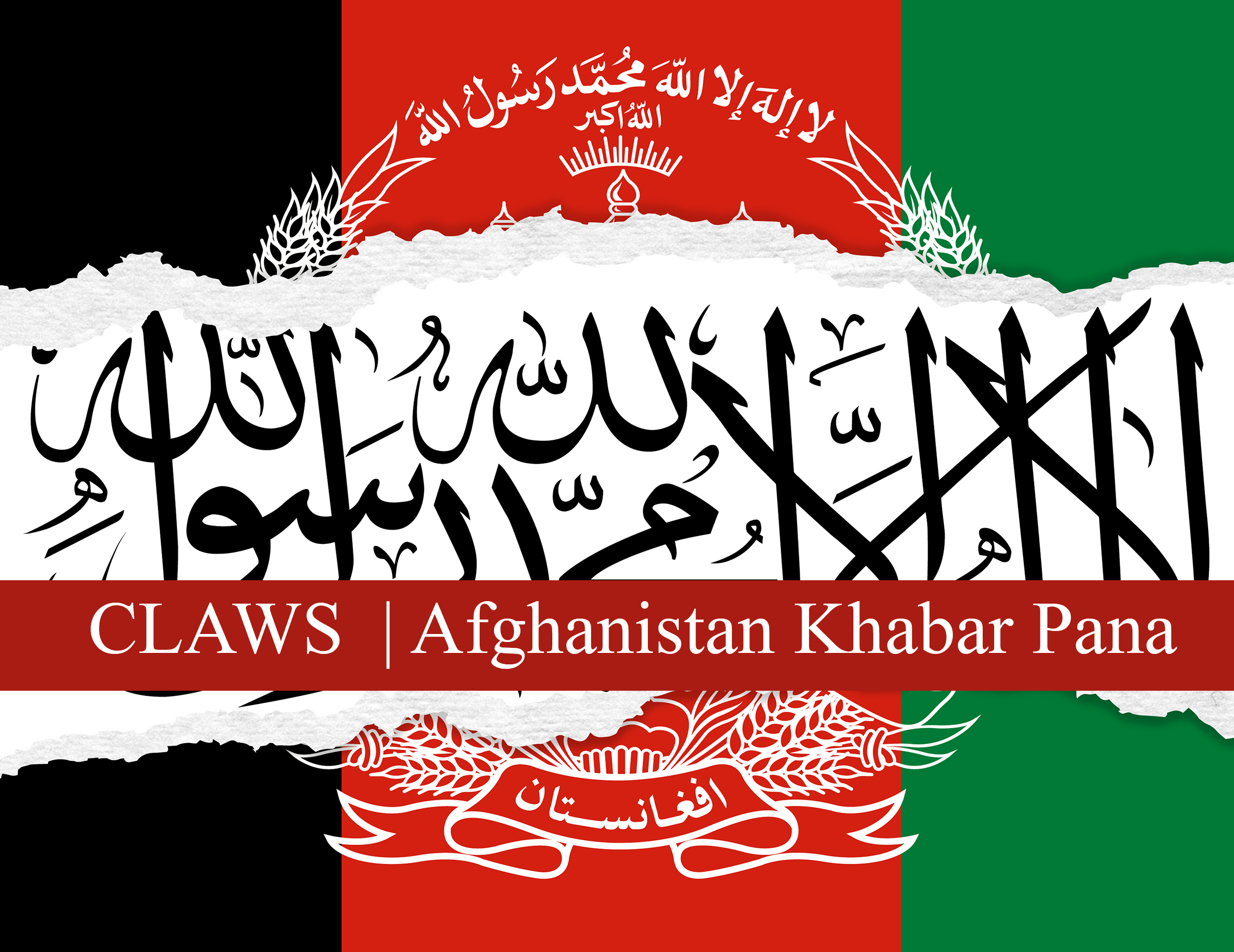
CLAWS Afghanistan Khabar Pana | Volume I | No. 11
This edition of Afghanistan Khabar Pana (Vol I, No. 11) offers a curated overview of major political, economic, and regional developments from July 16 to 31, 2025. Domestically, the Taliban reaffirmed their opposition to any foreign military presence and renewed calls for international recognition, even as they rejected the authority of the International Criminal Court. Despite remaining diplomatically isolated—as underscored by Afghanistan’s ranking as the world’s least powerful passport—the Taliban administration has continued to push its economic agenda. Significant momentum was noted in state and private sector investments, particularly in energy, mining, and infrastructure, with renewed interest in long-stalled projects such as Mes Aynak and new solar initiatives in Logar province. However, persistent economic distress remains evident in public discontent, including ongoing pension protests.
In the regional sphere, diplomatic activity intensified. Pakistan took the lead in promoting trade normalisation and regional connectivity by signing a preferential tariff agreement with Kabul and advancing the Uzbekistan-Afghanistan-Pakistan railway pact. Russia reiterated its call for inclusive governance in Afghanistan, while China deepened its engagement through political assurances and growing interest in the Wakhan Corridor. Germany reopened consular channels under Taliban oversight—marking a quiet but significant shift—while the UN Security Council raised urgent concerns over ISIS-K’s expanding reach and global threat profile.
This issue also features a new section on Afghanistan’s Returnee Crisis, in response to the escalating refugee and deportation emergency engulfing the region. Widespread expulsions from Iran, Pakistan, and Tajikistan—many targeting documented or asylum-seeking Afghan nationals—have triggered severe humanitarian concerns, particularly with rising reports of violence, disappearances, and family separations. The Taliban administration condemned the deportations as violations of international norms, while the UN allocated emergency funds to support vulnerable returnees, especially women and children. Simultaneously, Western responses remained mixed: while the UK began resettling Afghan veterans, uncertainties persisted in US refugee policy despite political assurances. Taken together, these developments reflect a country navigating complex internal challenges while caught in the cross-currents of shifting regional calculations and mounting humanitarian pressures.















